 The North Eastern Council (NEC), the nodal agency for economic and social development of the region, on Monday announced that it would construct a hostel exclusively for students from the region in Karnataka capital Bangalore.
The North Eastern Council (NEC), the nodal agency for economic and social development of the region, on Monday announced that it would construct a hostel exclusively for students from the region in Karnataka capital Bangalore.
The proposed hostel would accommodate around 1,700 students and would come up in an area of 39,900 square metres at the Jnana Bharati main campus of Bangalore University along the Mysore road, a NEC official said.
Under an agreement entered between the NEC and Bangalore University, NEC would sanction Rs.32.14 crore for the construction, while the varsity would provide the land free of cost.
The hostel would be constructed by the engineering wing of the university.
“The council had mooted the idea of having such a hostel at Bangalore University way back in 2008. But with recent incidence of student’s plight in Karnataka and other states, the NEC took up the proposal with urgency and the university’s senate gave its approval,” NEC secretary, Uttam K Sangma told reporters here.
Sangma added the council was also exploring the possibility of having similar hostels in Mumbai, Pune and Mysore.
“We would be exploring the possibilities of having similar hostels in Mumbai, Pune and Mysore,” the NECO official said.
He said the hostel in Bangalore would have separate blocks for girls and boys and would be equipped with modern facilities like rain water harvesting, solar water heater system, CCTVs and an indoor stadium.
“The issue of security would also be given due importance,” he said.
Bangalore University registrar BC Mylarappa said that there were about 9,000 students from the northeast studying in different colleges affiliated to the varsity.
Earlier, NEC helped in the construction of a 500-capacity girls’ hostel in Delhi University and a 501-capacity working women’s hostel in Jasola area of the national capital.
Currently, a women’s hostel for 500 students is underway in the south campus of Delhi University.
Source:
The proposed hostel would accommodate around 1,700 students and would come up in an area of 39,900 square metres at the Jnana Bharati main campus of Bangalore University along the Mysore road, a NEC official said.
Under an agreement entered between the NEC and Bangalore University, NEC would sanction Rs.32.14 crore for the construction, while the varsity would provide the land free of cost.
The hostel would be constructed by the engineering wing of the university.
“The council had mooted the idea of having such a hostel at Bangalore University way back in 2008. But with recent incidence of student’s plight in Karnataka and other states, the NEC took up the proposal with urgency and the university’s senate gave its approval,” NEC secretary, Uttam K Sangma told reporters here.
Sangma added the council was also exploring the possibility of having similar hostels in Mumbai, Pune and Mysore.
“We would be exploring the possibilities of having similar hostels in Mumbai, Pune and Mysore,” the NECO official said.
He said the hostel in Bangalore would have separate blocks for girls and boys and would be equipped with modern facilities like rain water harvesting, solar water heater system, CCTVs and an indoor stadium.
“The issue of security would also be given due importance,” he said.
Bangalore University registrar BC Mylarappa said that there were about 9,000 students from the northeast studying in different colleges affiliated to the varsity.
Earlier, NEC helped in the construction of a 500-capacity girls’ hostel in Delhi University and a 501-capacity working women’s hostel in Jasola area of the national capital.
Currently, a women’s hostel for 500 students is underway in the south campus of Delhi University.








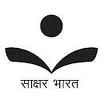

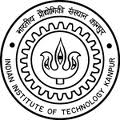
 The union ministry of home affairs (MHA) has barred Indian Institute of Technology (IIT)-Kanpur from accepting foreign donations, citing the premier institute’s laid-back attitude in submitting documents supporting the usage of foreign funds, an official said.
The union ministry of home affairs (MHA) has barred Indian Institute of Technology (IIT)-Kanpur from accepting foreign donations, citing the premier institute’s laid-back attitude in submitting documents supporting the usage of foreign funds, an official said.
 Sixty-four private city schools have illegally collected higher fee from students since September 2008, a committee has informed the Delhi high court while recommending a refund of the money with 9 percent per annum interest.
Sixty-four private city schools have illegally collected higher fee from students since September 2008, a committee has informed the Delhi high court while recommending a refund of the money with 9 percent per annum interest.
 The Haryana government is set to launch a project, under which students at the school level would be trained in vocational courses.
The Haryana government is set to launch a project, under which students at the school level would be trained in vocational courses.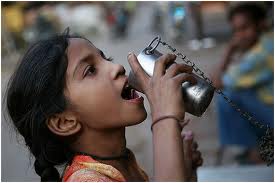
 Seventeen Delhi government schools would get solar-powered water treatment plants to provide potable water to over 750 students daily in each institution, chief minister Sheila Dikshit said on Saturday.
Seventeen Delhi government schools would get solar-powered water treatment plants to provide potable water to over 750 students daily in each institution, chief minister Sheila Dikshit said on Saturday.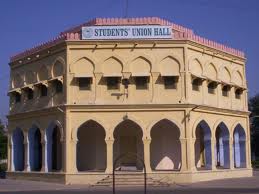
 Girls in Aligarh Muslim University (AMU) will now have a union of their own.
Girls in Aligarh Muslim University (AMU) will now have a union of their own.
 The Jammu and Kashmir police has sanctioned scholarships worth Rs 11 lakh to 153 school-going children of policemen, including 81 children of security personnel who laid down their lives for the security of the state.
The Jammu and Kashmir police has sanctioned scholarships worth Rs 11 lakh to 153 school-going children of policemen, including 81 children of security personnel who laid down their lives for the security of the state.
 The committee on subordinate legislation of Jammu and Kashmir Legislative Assembly on Thursday directed the officers of education department to come up with the legislation for regulating the private coaching institutions to be taken up during ensuing Assembly session.
The committee on subordinate legislation of Jammu and Kashmir Legislative Assembly on Thursday directed the officers of education department to come up with the legislation for regulating the private coaching institutions to be taken up during ensuing Assembly session.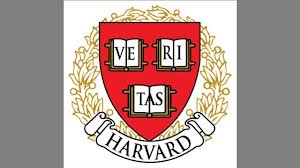
 About 125 Harvard University undergraduates are being investigated for cheating in a final exam last year, the largest academic misconduct scandal in the prestigious institution’s history.
About 125 Harvard University undergraduates are being investigated for cheating in a final exam last year, the largest academic misconduct scandal in the prestigious institution’s history.











